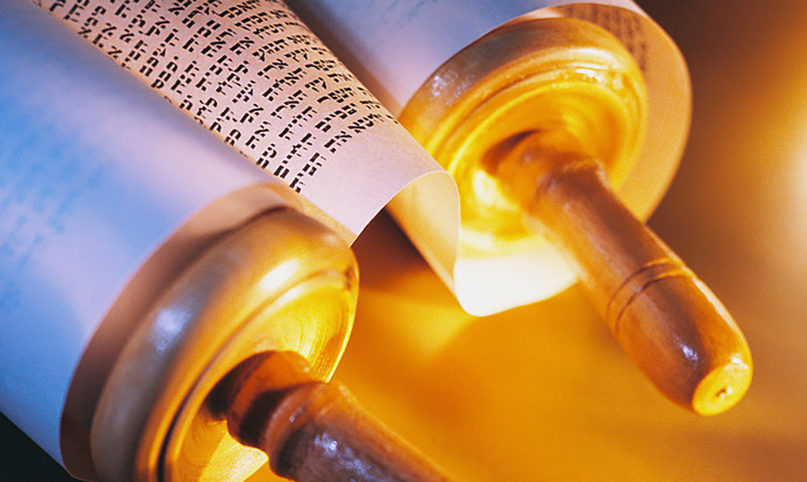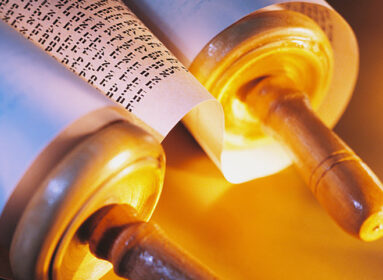
By Shlomo Riskin
When the individual Jew brings the first fruits of the Land of Israel to the Holy Temple on the Festival of Shavuot, he addresses God as if He represents the entire historic People of Israel: “My father (Jacob) was a wandering Aramean… the Egyptians afflicted us, the Lord took us out of bondage.” Indeed, it is true that each Jew must see himself as the embodiment of his history, must completely identify with the generations that preceded him and feel responsible for the succeeding generations to come.
But what of the convert to Judaism who is not a descendant of generations of past Jews? The Mishna teaches (Bikkurim 1,4): “These are the individuals who are responsible to bring [the first fruits], but do not declaim [the entire narrative]: the convert brings but does not declaim, since he cannot refer to “the land which the Lord swore to our forebears to give to us.”
The Mishna continues to make a similar point regarding the convert: “And when [the convert] prays [the Amida] by himself, he says, “Blessed art thou O Lord, our God and the God of the forefathers of Israel” [rather than “and the God of our forefathers”]; when [the convert] is praying in the synagogue as the cantor [representative of the congregation], he says, “and the God of your forefathers” (Bikkurim 1:4).
Interestingly, however, normative Jewish law does not follow this mishna; the convert has the same legal status as the biologically born Jew both with regard to the words of his speech accompanying his bringing of the first fruits, as well as with regards to his specific language in the Amida prayer. The Jerusalem Talmud (ad loc.) disagrees with the Mishna in the Babylonian Talmud (which only cites the view of R. Meir), citing an alternate baraita which brings the view of R. Yehuda: “The convert himself must bring and declaim! What is the reason? Because God made Abraham the father of a multitude of nations, so that Abraham [metaphysically] becomes the father of everyone in the world who enters under the wings of the Divine Presence.” Every convert is ensouled into the family of Abraham and Sarah!
In the Jerusalem Talmud, R. Yehoshua b. Levi declares that the normative law is to be in accordance with R. Yehuda, and R. Abahu actually ruled in the case of a convert that he bring and declaim in the manner of every biologically born Israelite. Maimonides decides similarly (Mishneh Torah, Laws of First Fruits), and even penned a most poignant responsum to Ovadia the Proselyte (MeKitzei Nirdamim, 293), which includes the ruling that a convert pray to “the God of our forefathers” as well! This is clearly why every convert becomes the son/daughter of Abraham and Sarah, with the ritual immersion at the time of the conversion, signaling their “rebirth” into the Jewish family-nation. (This does not take anything away from the biological parents, who nurtured them and so deserve heartfelt gratitude and sensitive consideration.) Hence, the convert too is considered to have entered Jewish history, and even to have Abrahamic – Sarahic “blood” pulsating through his/her veins. Judaism has nothing to do with race!
Finally, the Jew begins his declamation with the words, “My father was a wandering Aramean.” Yes, we have seen from the Mishna in Bikkurim (as well as Kiddushin 3:12) that the religious status of the child is determined by the mother, most probably because the fetus is inextricably intertwined with the mother as long as it is in the mother’s womb. Nevertheless, there is an important DNA contribution of the father which cannot be denied. This gives rise to a special halakhic category for a child who is born to a gentile mother and a Jewish father, known as “zera Yisrael,” Israelite seed.
Such a child is not considered to be a Jew and does require a process of conversion. However, most decisors throughout the generations have felt it to be incumbent upon the Jewish community to encourage conversion for such individuals and to be as lenient as possible in order to effectuate these conversions. An important work called Zera Yisrael was recently published by Rabbi Ĥayyim Amsalem (former M.K. Shas), in which he documents the relevant responsa, which suggest that “the religious court is duty-bound to convert” the individual with zera Yisrael status (Piskei Uziel, 64:4).
What is this reference to “seed of Israel”? Our children and our future generations have already been mentioned. Michael Freund, Director of Shavei Yisrael, pointed out to me (during an unforgettable trip to India for meetings with the Benei Menashe) that this must be referring to those who have Jewish DNA from their paternal – but not maternal – side, Zera Yisrael. It is especially incumbent upon us to reclaim these exiled seeds of Abraham and Sarah and restore them to their land and their Jewish ancestry.








 Southern New England Jewish Ledger
Southern New England Jewish Ledger








